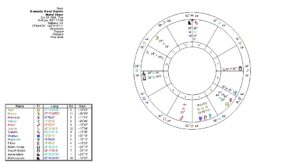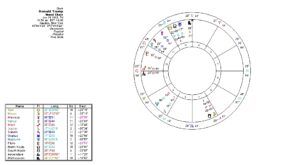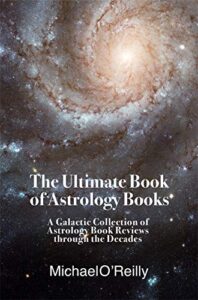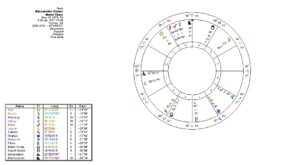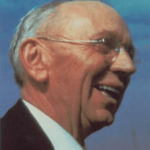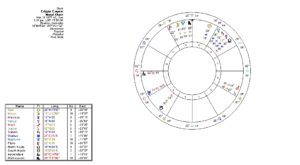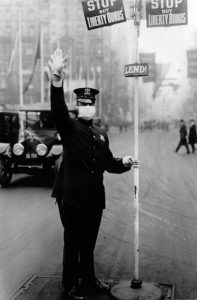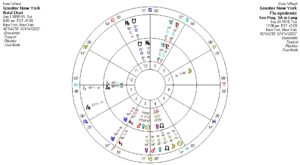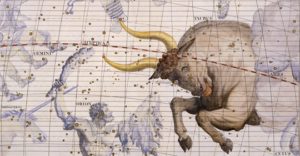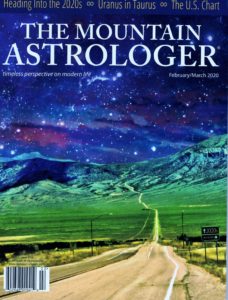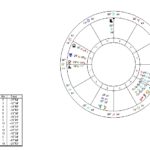The 2021 inauguration horoscope seems to indicate a period of momentous change and potential turmoil, upheaval and even loss during the term. Seven planets all square one another, and Neptune squares the Nodes. Certainly there should be many noteworthy events in the coming four years, and we also appear to be moving into a new and different situation. Is it possible to be more specific?

We can get a better idea of what we might expect in the future by looking back through history. While I’ve seen no inauguration horoscope as focused or dramatic as 2021, various elements repeat themselves from previous administrations.
Pluto can relate to financial issues, power, essential transformation and intervention or even manipulation. Pluto with the Sun or Midheaven in an inauguration horoscope may show the president’s experience with these issues during the term.
Thomas Jefferson’s 1801 administration and James Monroe’s 1817 term both had the Sun conjunct Pluto in Pisces. William McKinley (and Theodore Roosevelt) had the inaugural Sun and Mercury in a T-square with Uranus and Pluto. Franklin Delano Roosevelt had an angular grand cross with the Sun, Moon, Mars, Uranus and Pluto in 1937 and a fixed grand cross with the Sun, Moon, Mercury and Pluto in 1941. Ronald Reagan’s 1981 inauguration had the Sun, Moon and Nodes square Pluto.
Most of these Plutonian administrations were notable victories for the presidents elected. They all sought to unite the country in various ways, and often succeeded (the above list includes some of the most notable presidents in history). The political parties themselves also underwent change either in their evolution or due to reforms or other pressing issues. Developments in the country’s territory, alliances and antagonisms came to the forefront. Financial affairs were often highlighted, with important changes in policies and trends. The presidents either chose to utilize more fiscal or political power, or were forced to do so.
Hard aspects from Uranus to the Sun in inauguration horoscopes created surprising and unforeseen circumstances in administrations that started with them. They coincided with danger to the chief executive as well as some of the shortest of presidential terms. William Henry Harrison served for a month (Sun conjunct Uranus), James Garfield and William McKinley only eked out about six months apiece (Sun opposite and square Uranus, respectively), and Warren Harding served for about two and a half years (Sun opposite Uranus). The Civil War raged throughout Abraham Lincoln’s Sun square Uranus 1861 term, with a tempestuous and chaotic situation for the entire country. (All of these inauguration charts also included Jupiter conjunct or parallel Saturn.)
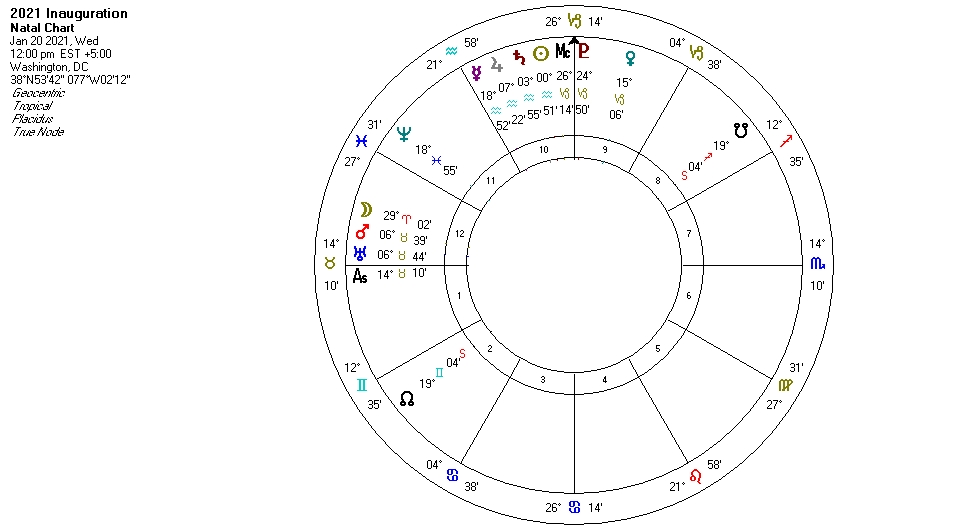
A concern for 2021 is Uranus conjoining the inaugural Ascendant (less than 7½ degrees). Roosevelt’s 1941 inauguration Uranus was solidly in the first house and he was forced to confront the constant unpredictability of war (though Uranus had no close classical aspects and the fixed grand cross did not involve it). Roosevelt’s 1937 administration may more closely resemble 2021, as Uranus is in a grand cross with the Sun, Moon, Mars and Pluto. Overseas conflicts were a key issue, but the U.S. was not yet at war. Though in 1937, Uranus was in the twelfth house in the inauguration chart.
Ulysses S. Grant’s first term featured Uranus rising closely trine the Sun and a grand fire trine, quite a different pattern. He was a reformer who supported Reconstruction and civil rights and made progress in these areas while stabilizing the economy.
Uranus and Mars conjunct the first house in 2021 suggests a new identity and perspective for the country. Mars in its detriment in Taurus holds the potential for volatility and even violence, and with an angular Sun square Uranus, the president will likely face some surprises. Popular movements may impact the coming years, leading to reform or even some sort of crisis or revolution that shakes up the country in a significant way.
But with traditional rulers, Saturn is the final dispositor of the 2021 inauguration chart, ultimately ruling both Mars and Uranus as well as the Sun. Only a few chief executives began their terms with the Sun actually conjunct Saturn. These coincided with contentious issues and the administrations were limited in time or by circumstances.
Zachary Taylor was the only president not elected in a zero year to die in office. His 1849 inauguration Sun conjoined both Saturn and the South Node. Over a decade before the Civil War, the slavery debate had created partisan divisions and southern leaders threatened succession. Rutherford B. Hayes came to the presidency in 1877. With an inaugural Sun conjunct Saturn, Hayes’ election was one of the most hotly disputed in U.S. history. He lost the popular vote, and electoral votes in the south were contested amidst charges of fraud and Black voter suppression. John F. Kennedy’s Sun conjunct Saturn in Capricorn years are remembered for the Cold War, with civil rights also an important issue during the early ‘60s as well.
All three of these Sun-Saturn administrations addressed Black inequality (the Sun-Saturn combinations reiterate the Sun-Saturn square in the U.S. horoscope). With the Black Lives Matter movement in the forefront in 2020, it seems probable that racial justice will once again feature in the 2021 administration. The president could be limited to some extent by public opinion (first house), opposing parties or international relations. Like FDR or even Woodrow Wilson in 1913 with a Moon-Mars-Uranus conjunction straddling the ninth house cusp, the president may also need to begin to respond to developments abroad as the country’s relationships are re-evaluated and reorganized (since Mars or Pluto rule the inaugural seventh house).
Uranus squaring Saturn in the tenth house in the 2021 inauguration highlights the breakdown of old structures, with movement into a new phase. Unanticipated events might even impact the president personally.
In fact, many presidential elections or inaugurations with hard aspects between Saturn and Uranus have coincided with a change in the president’s political party. (We can consistently see this in the transitions from James Buchanan to Lincoln, Hoover to FDR, Truman to Eisenhower, Ford to Carter, Clinton to George W. Bush and Bush to Obama.) This presents a likelihood that the same will occur in 2021.
Though I personally need to analyze the candidates themselves before coming to a more definite opinion about the election (see my guidelines for forecasting political elections here), planetary cycles are very powerful!
I analyze many inaugural horoscopes in my forthcoming book, Tecumseh’s Curse: Indigenous Wisdom, Astrology and the Death of U.S. Presidents.

